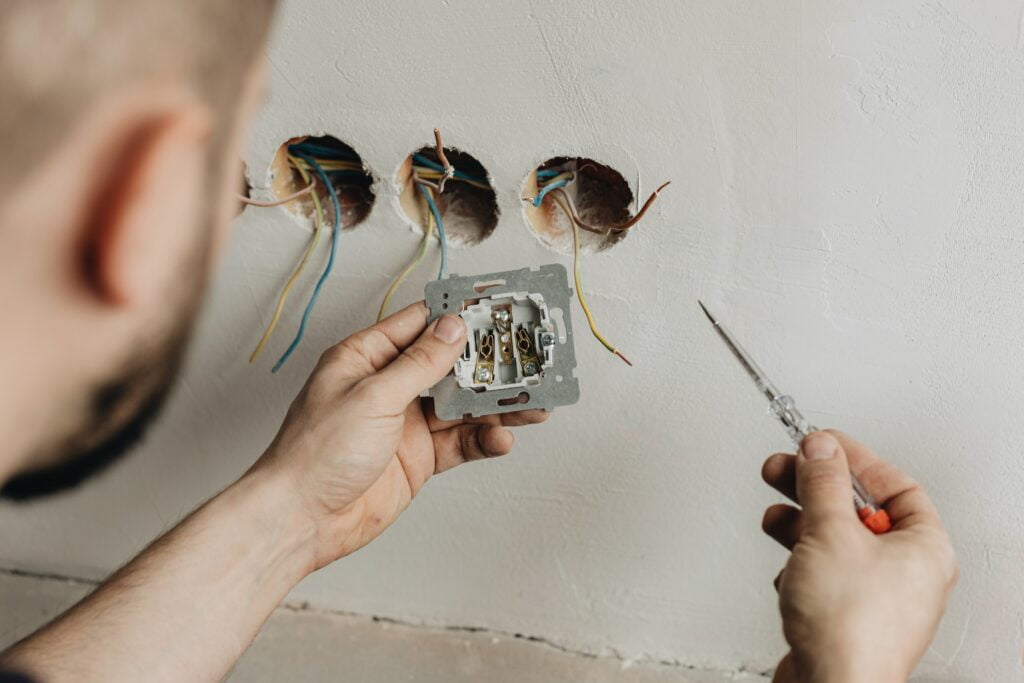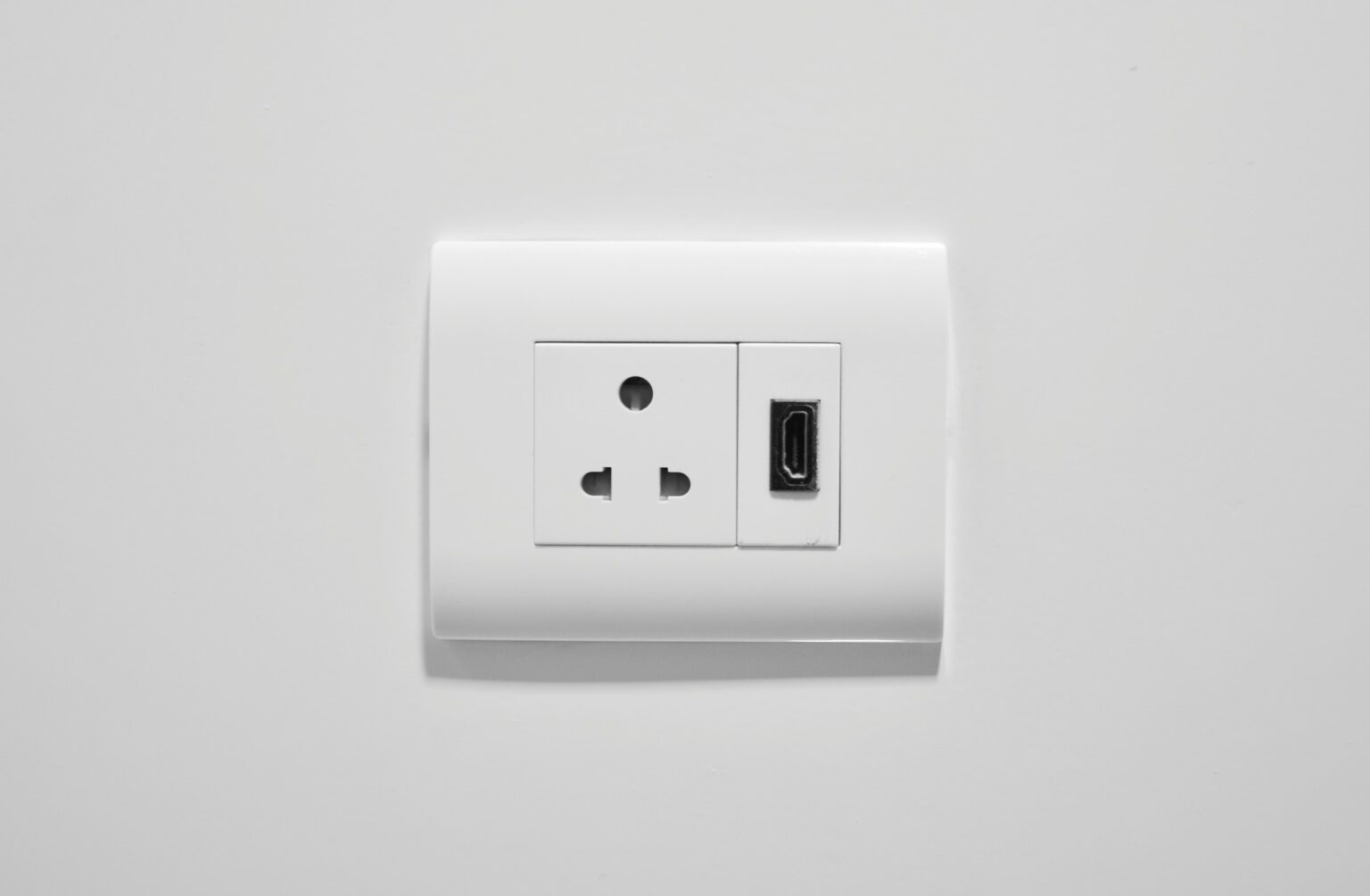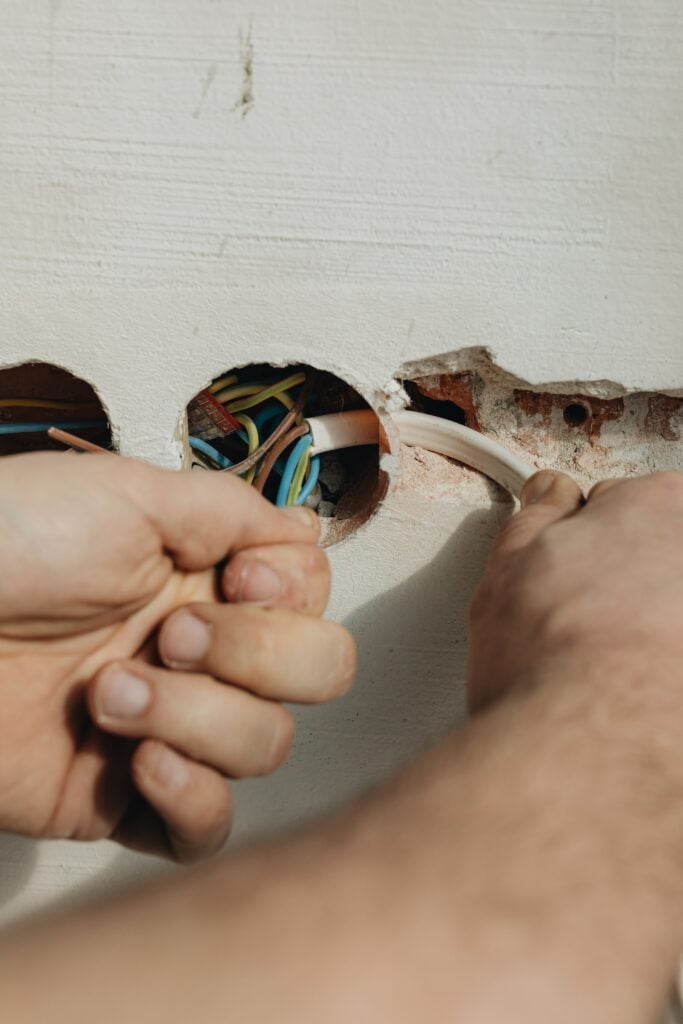Electricity powers our modern lives, from brewing morning coffee to keeping the lights on. However, the unsung heroes behind these conveniences are the electrical outlets. Not all outlets are created equal; each type serves a specific purpose, and understanding these differences is crucial for safety and efficiency. So, let’s find out about the different types of electrical outlets.
Importance of Electrical Outlets:
Electrical outlets play a critical role in modern homes and businesses, providing a safe and convenient way to access electrical power. Their importance can be understood through several key aspects:
- Power Accessibility: Electrical outlets provide easy and direct access to electricity. It is essential to power a wide range of devices and appliances we use daily, from kitchen appliances to electronic gadgets.
- Safety: Outlets are designed to transfer electricity from the electrical system to your appliances and devices safely. Modern outlets include features like Ground Fault Circuit Interrupters (GFCI) and Arc Fault Circuit Interrupters (AFCI), which help prevent electrical shocks and fires.
- Energy Efficiency: Some outlets, such as smart outlets, enable better energy management. They can monitor and control power usage, helping to reduce unnecessary electricity consumption and save on energy bills.
- Convenience and Flexibility: With the variety of outlets available, including those with USB ports or built-in timers, you can charge devices directly without needing adapters or program appliances to operate only when needed.
- Building and Electrical Code Compliance: Properly installed and maintained electrical outlets are a requirement in building codes. They ensure that a building’s electrical system meets safety standards.
- Adaptability to Technology Changes: As technology evolves, so do the requirements for power delivery. Upgraded outlets, like those with USB ports or designed for high-powered devices, keep homes and businesses compatible with new technologies.
- Aesthetic and Design Considerations: Outlets can be designed to blend in with or complement the interior design of a space. There are various styles and colours to match different décor preferences.
- Impact on Property Value: A home or building with adequate, modern, and safely installed electrical outlets can have a higher perceived value. It indicates that the property can cater to current and future electrical needs.
Different Types of Electrical Outlets
15-Amp Outlets
The most common type found in homes, 15-amp outlets are ideal for less power-intensive devices like lamps and alarm clocks. Recognizable by three slots, they are the standard choice for everyday appliances.
20-Amp Outlets
These outlets cater to slightly more powerful appliances like microwave ovens and air fryers. You can distinguish them by a T-shaped prong on one of the top slots. They are often strategically placed in homes for devices requiring more power.
Specialty High-Power Outlets (20A, 250V; 30A, 250V; 50A, 125/250V)
Reserved for heavy-duty appliances like large ovens, air conditioners, and welding equipment, these outlets can handle more substantial power draws and are essential in specific applications.
GFCI Outlets
Ground Fault Circuit Interrupter outlets are necessary in moisture-prone areas like bathrooms and kitchens. They monitor current flow and shut off upon detecting leaks, preventing electric shocks.
AFCI Outlets
Arc Fault, Circuit Interrupter outlets, are designed to prevent electrical fires caused by arcing in damaged or loose wiring. They are especially valuable in bedrooms and living areas where an unnoticed fault could be catastrophic.
USB Outlets
In today’s connected world, USB outlets provide convenient charging points for devices like smartphones and tablets. These outlets often come combined with traditional sockets for added versatility.
Tamper-Resistant Receptacles
An essential safety feature in homes with children, these outlets prevent foreign objects from being inserted into the slots, significantly reducing the risk of electrical injuries.
Smart Outlets
These technologically advanced outlets allow for remote control and energy consumption monitoring, bringing convenience and efficiency to modern homes.
Weather-Resistant Receptacles
These outlets are ideal for outdoor use and are designed to withstand elements like rain, snow, and humidity, ensuring safety in external environments.
Rotating and Split Circuit Outlets
Rotating outlets, which can turn 360 degrees, are handy in tight spaces. On the other hand, split circuit receptacles allow for managing power usage more efficiently.
Frequently Asked Questions:
How do I know if I need a GFCI outlet?
If the outlet is in a moisture-prone area like a bathroom or kitchen, a GFCI outlet is a must for safety.
Can I install a smart outlet myself?
Yes, but if you’re not comfortable with electrical work, it’s best to contact a professional like MC Electrical & Communications.
As you ponder the world of electrical outlets, remember that the right choice can be as comforting as a cat’s purr in a quiet home. Don’t hesitate to contact MC Electrical & Communications for expert advice and installation.




